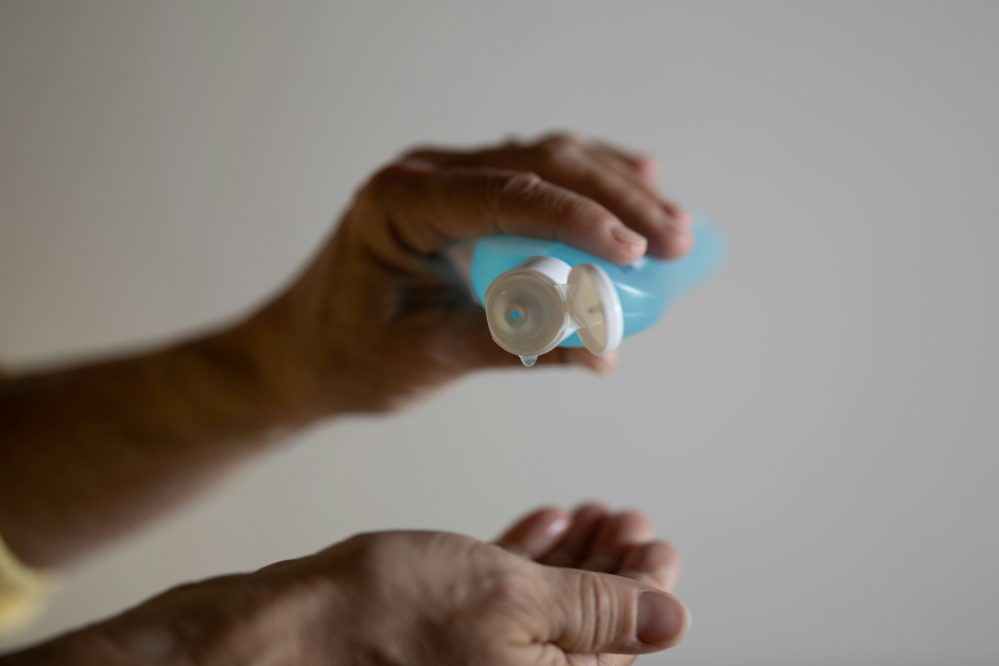Nurses have had a lasting influence on medical practices around the world by playing a key role in advancing healthcare, fostering innovation, enhancing patient care, and promoting social change.
Nurses, numbering an estimated 29 million globally, have long been the backbone of healthcare systems, providing essential care and leading advancements in practical nursing that have reshaped medical practices worldwide. They have driven public health innovations through unwavering resilience, leadership, and a deep commitment to patient advocacy, fought for patient rights, and improved healthcare outcomes across generations.
Read on to learn more about some of the most influential and famous nurses who have shaped healthcare as we know it.
Nurses Who Left a Lasting Legacy
These 23 amazing nurses made history by improving sanitation and breaking racial and gender barriers, leaving a legacy that still inspires and shapes nursing today.
Clara Barton
Known as “the Angel of the Battlefield,” Clara Barton was a pioneering nurse and humanitarian who founded the American Red Cross in 1881. During the Civil War, she delivered medical supplies and provided care for wounded soldiers, setting new standards for battlefield nursing.
Barton worked tirelessly to organize relief efforts during disasters, including the 1889 Johnstown Flood and the Spanish-American War, fundamentally changing how emergency response was conducted. Her legacy lives on through the Red Cross, which still reflects her dedication to helping others and providing care during crises.
Florence Nightingale

Florence Nightingale, often called the founder of modern nursing, played a key role during the Crimean War, where she introduced new practices that transformed hospital care. She focused on the importance of sanitation, hygiene, and proper nutrition, which greatly reduced death rates in hospitals.
Nightingale also used statistical analysis to highlight the need for healthcare reforms, helping to establish evidence-based nursing practices. Her legacy continues today in nursing education and hospital procedures, reflecting her belief that patient care should be based on both scientific evidence and compassion, which are core principles of modern nursing.
Dorothea Dix
Dorothea Dix was a dedicated advocate for the rights of people with mental illnesses in the 19th century. Her efforts brought major changes to mental health care in the United States and Europe. Dix investigated the poor conditions in asylums and presented detailed reports to lawmakers, highlighting the urgent need for reform.
Her work led to the creation of psychiatric hospitals and helped shift public attitudes, promoting more compassion and understanding of mental illness. Today, Dix is remembered for her dedication to supporting vulnerable groups and for influencing policies that improved mental health care.
Margaret Sanger
In the early 1900s, Margaret Sanger, a supporter of women’s reproductive rights, championed the movement for birth control education. She recognized the value of women having access to family planning options, which led to the founding of Planned Parenthood. Sanger fought against laws that restricted women’s control over their bodies and advocated for contraception education.
By establishing reproductive health as an essential part of women’s healthcare, her pioneering work set the stage for subsequent advancements in women’s rights and access to care. For centuries, Sanger’s work has helped women make better decisions about their reproductive health.
Mary Eliza Mahoney
Mary Eliza Mahoney broke racial barriers in healthcare by becoming the first African American registered nurse (RN) in the U.S., graduating in 1879. Her achievement was a significant milestone in a predominantly white profession, and she became an advocate for racial equality within nursing.
Mahoney devoted her career to creating opportunities for African American nurses and enhancing nursing education and patient care. Her tenacity and commitment made nursing more inclusive and varied, providing equal opportunities for all medical professionals and creating opportunities for upcoming generations of nurses.
Mary Breckinridge
One of the pioneers of nurse-midwifery in the United States was Mary Breckinridge, who founded the Frontier Nursing Service in 1925. Her organization was dedicated to delivering healthcare to impoverished rural Appalachian communities, focusing on maternity and child health.
Using nurse-midwives, Breckinridge significantly reduced maternal and infant death rates in these underdeveloped communities. Her innovative approach to community-based healthcare enabled additional advancements in rural health services. By highlighting the need to combine nursing with community involvement and public health initiatives to enhance overall health outcomes, her legacy continues to inspire healthcare professionals to prioritize rural patients.
Mary Seacole
Mary Seacole, a nurse born in Jamaica, made a lasting impact on the nursing profession during the Crimean War by caring for wounded British soldiers on the front lines. Despite facing racial discrimination, she set up her own hospital, blending her skills as an herbalist with modern medical practices.
Seacole’s compassion and commitment to patient care earned her the respect of many. She became known for her innovative treatments and holistic approach. Her legacy serves as a reminder of the important contributions of diverse voices in nursing, highlighting the need for inclusivity and cultural competence in healthcare.
Linda Richards

As the country’s first professionally trained nurse, Linda Richards is credited with significant achievements that revolutionized nursing. She improved patient care and accountability by establishing nursing education programs and instituting the hospital record-keeping process.
By establishing nursing standards and education, Richards also contributed to the modernization of healthcare in Japan. Future generations of nurses benefited from her creative ideas and commitment to enhancing nursing practices. Her impact is still felt today in nursing education and the profession’s continuous advancement toward greater professionalism and higher-quality care.
Hazel Johnson-Brown
Hazel Johnson-Brown was the first African American woman to hold a general position in the U.S. Army and manage the Army Nurse Corps. During her tenure, she worked to ensure that nurses’ military service was recognized and that regulations that improved soldier healthcare were implemented.
Through her leadership and commitment, Johnson-Brown exemplified diversity and quality in nursing. Her legacy continues to inspire future generations of nurses, especially women and minorities, to pursue leadership roles and advance equitable healthcare practices in both military and civilian settings.
Anna Caroline Maxwell
Anna Caroline Maxwell, also known as the “American Florence Nightingale,” played a significant role in developing military nursing practices in the U.S. Army Nurse Corps during the Spanish-American War. She taught nurses about proper hospital administration, sanitation, and patient care, significantly decreasing the number of soldiers dying from disease.
Her contributions improved the quality of care during the war, establishing nursing standards and education that would influence nursing practices in the military and the civilian world for years to come.
Edith Cavell
A nurse known for her bravery and compassion, Edith Cavell was crucial in helping Allied soldiers flee German-occupied Belgium during World War I. Despite the significant personal risk, she showed the core nursing values of compassion, neutrality, and selflessness by caring for German and Allied soldiers.
Cavell’s dedication to humanitarianism ultimately led to her imprisonment and murder by the Germans. Nonetheless, her martyrdom acted as a symbol of nursing values and a spur for international humanitarian efforts.
Florence Guinness Blake
Early in the 20th century, Florence Guinness Blake was a pioneer in pediatric nursing and nursing education. Her creation of thorough guidelines for pediatric healthcare contributed to the recognition of pediatric nursing as a separate specialty within the nursing field.
In addition to professionalizing nursing, her work motivated future generations of nurses to emphasize patient-centered care and support children’s special needs. Her legacy still has an impact on pediatric nursing and medical procedures today all around the world.
Virginia Avenel Henderson
Virginia Avenel Henderson, the “First Lady of Nursing,” had a significant impact on healthcare by advocating for patient-centered care and a holistic approach to wellness. Her nursing philosophy focused on helping patients become more autonomous and improving their overall well-being.
Henderson’s definition of nursing placed a strong emphasis on the importance of understanding each patient’s unique needs, a concept that is central to nursing practice and education worldwide today.
Walt Whitman
Yes, this is the Walt Whitman you learned about in your English Literature class! Although Walt Whitman is primarily known as a poet, he also volunteered as a nurse during the American Civil War. His time in military hospitals deeply influenced his writing, as he captured the emotional and psychological effects of war on both soldiers and caregivers.
Whitman’s empathy and commitment to caring for the wounded reflect the deep compassion at the heart of the nursing profession. His poetry often explores themes of humanity and shared suffering, showing how his nursing experiences shaped his art and emphasized the importance of compassion in both literature and healthcare.
Lillian Wald
Lillian Wald, a trailblazing public health nurse, founded the Henry Street Settlement in New York City. In the late 19th and early 20th century, she worked hard to address the societal factors that affected the health of immigrant and low-income populations.
Wald’s advocacy for social reform and accessible healthcare helped establish nurses’ critical role in public service and community health. Her work laid the groundwork for modern public health nursing by highlighting the importance of combining social justice with healthcare. She continues to inspire the next generation of nurses to educate and advocate for the community.
Mabel Keaton Staupers

Mabel Keaton Staupers is known for her dedicated advocacy for racial equality in nursing, especially during World War II when she worked to integrate the U.S. Army Nurse Corps. Her dedication and leadership helped dismantle racial barriers, enabling African American nurses to work side by side with their white counterparts.
Staupers’ influence went beyond the military to affect nursing practice and education, and her work was essential in reversing regulations that had long restricted possibilities for minority nurses.
Martha Jane Cannary
Martha Jane Cannary, better known as Calamity Jane, is celebrated for her contributions as a caregiver during smallpox outbreaks on the American frontier. Although she had no formal medical training, Cannary demonstrated remarkable resilience and compassion while providing care in extremely challenging conditions. She became known for her dedication to helping those affected by the disease, often risking her health and safety to tend to others.
Her experiences demonstrate the sensitivity and tenacity that characterize the nursing profession and emphasize the spirit of caregiving and the critical role that untrained individuals may play in healthcare amid crises.
Mary Ann Bickerdyke
During the American Civil War, Mary Ann Bickerdyke made a significant impact as a nurse advocating for improved conditions in military hospitals. Known as “Mother Bickerdyke,” she dedicated her life to promoting the health and well-being of troops, often confronting military leaders about the inadequate medical facilities.
Bickerdyke not only created hygienic practices but also ensured that soldiers had the proper supplies and care, greatly improving their quality of life. Her perseverance and persistent advocacy paved the way for modern military nursing and healthcare reform. Her reputation as a pioneering nurse who fought for her patients’ health and dignity lives to this day.
Naomi Judd
Naomi Judd gained a deep awareness of healthcare concerns while working as a nurse prior to her singing career. Throughout her life, she advocated for people dealing with mental health issues, including her personal experiences, and utilized her position to spread awareness about mental health.
Judd’s dedication to raising awareness of mental health issues emphasized the value of empathy and understanding in medical care, inspiring people to get support and assistance. Her legacy continues to encourage people to talk openly about mental health, showing how advocacy and changes in the healthcare system may be sparked by personal experience.
Tina Turner
From an early age, Tina Turner developed a deep sense of empathy and compassion, shaped by her exposure to the healthcare sector during her childhood—qualities that have remained with her throughout her life.
Turner has been open about her struggles with mental health, and she has used her platform to encourage people to get treatment and de-stigmatize mental health issues. Her efforts emphasize the vital importance of mental health awareness and the significant role individuals can play in supporting one another, showcasing the profound connection between personal experiences and the broader healthcare narrative.
Bonnie Hunt
Bonnie Hunt is another former nurse who pursued a career as an artist. Her background as a nurse greatly impacted her understanding of empathy and interpersonal relationships, which in turn shaped her approach to comedy and storytelling.
In addition to providing her with firsthand knowledge of the challenges faced by patients, Hunt’s work in oncology strengthened her resolve to raise awareness of healthcare-related concerns. She keeps using her platform to promote new issues, serving as a reminder of the profound impact that healthcare experiences may have on a person’s personal and professional life.
Claire Bertschinger
Claire Bertschinger gained international recognition for her nursing work during the Ethiopian famine in the 1980s, which inspired the creation of the Live Aid humanitarian aid effort. Her dedication to caring for the most vulnerable populations in extreme conditions drew global attention to the urgent issues of hunger and poverty.
Bertschinger’s tireless efforts highlighted the critical role that nurses play in advocating for human rights and providing essential care in crisis situations. Today, her legacy serves as a reminder of the power of nursing to effect change and the importance of compassion in addressing global health challenges.
Elizabeth Grace Neill
Elizabeth Grace Neill is renowned for her important role in developing New Zealand’s nursing laws. She dedicated her life to improving her nation’s nursing profession and fervently supported appropriate education and higher nursing standards. Because of Neill’s efforts, nursing was recognized as a competent profession that should be respected and given responsibility in the healthcare system.
Her support ensured that nurses be acknowledged for their knowledge and accomplishments, laying the groundwork for future developments in nursing practice and education.
The Bottom Line
These 23 nurses revolutionized the field through leadership, advocacy, and groundbreaking innovations, improving healthcare outcomes globally. From advancing patient care and public health to fighting for social justice and education reform, their diverse contributions have shaped the nursing profession into what it is today. Their legacy inspires and guides modern-day nurses in their commitment to compassionate, high-quality care.
If you’re ready to make a lasting impact in nursing, explore the Practical or the Registered Nursing program at AIAM and take the first step toward becoming a part of this remarkable profession.
Frequently Asked Questions (FAQs)
How have male nurses impacted the healthcare profession?
Male nurses have diversified the nursing workforce, bringing unique perspectives and skills while challenging traditional gender roles. This has ultimately improved patient care and promoted inclusivity in healthcare.